
Do you have what you need to make your garden grow?


Garden Center
Store Hours
Mon-Sat:
6:00am - 10:00pm
Sun:
8:00am - 8:00pm
Curbside:
09:00am - 6:00pm
Location
Popular at Your Garden Center
Trending Garden Supplies in May
Trending Live Plants
Garden Project Calculators
;Resize=(703,395.44))
Grass Seed Calculator
When you're ready to seed your lawn, our calculator helps you estimate the amount of grass seed you'll need to get the job done.
;Resize=(703,395.44))
Mulch Calculator
Enter your preferred material, the square footage and mulch depth of the coverage space for accurate results.
;Resize=(703,395.44))
Fencing Calculator
We'll calculate the amount of fencing you should purchase based on your property needs.
Shop Outdoor and Garden Brands
Frequently Asked Questions About Gardening
What planting zone am I in?
Check the USDA plant hardiness zone map, as planting zones have changed slightly over the years. Planting zones with higher numbers can plant earlier in the year. Increase your odds of successful gardening by choosing plants that are meant for your zone.
What does direct sow mean?
If the soil is warm and pliable, consider planting your veggie, flower, or fruit seeds directly into your garden. This is called the "direct sow" method. Plant after the threat of frost is gone for the season, as seedlings and sprouts can't weather those conditions. You can also start your seeds indoors if you'd like. Consult your seed envelope for how and when to sow seeds.
Do you carry organic plants and seeds?
We offer many organic gardening options, including organic fruit seeds and veggie seeds, as well as organic herb and flower seeds that are subject to availability. We carry the organic soil to plant them in as well as the organic fertilizer to feed your plants.
Do I have to harden off my seedlings before planting them outside?
Yes, for best results, if you raised plants indoors from seeds in your own plant nursery, harden them first before you transplant them. Hardening allows your seedlings to adjust to outdoor life, spring rains, and temperature swings, making them more resilient against cold snaps. It slows their growth until they're strong and ready to take off during a spring warm front.
What should I do before planting transplants or seeds outside?
Before you plant, make sure that your plant will have the right amount of sun, the soil is healthy, and it's warm enough outside. Check your seed package to see if it likes shade, partial sun, or full sun, as well as what time of year it should be planted. Space your plants as described on the seed packet for best results so your plant babies have room to grow big and strong.
What are seed tapes?
If you want more guidance in planting or are dealing with extremely tiny seeds, consider seed tapes. They're biodegradable pieces of paper with tiny seeds affixed at regular intervals. Just bury the tape and water as directed. If all goes well, you'll have perfectly spaced sprouts pop up soon.
Garden Project Ideas
The Home Depot Garden Center at Steele Creek
Set Up For Springtime
On beautiful spring days, tidy the yard before everything blooms in earnest. Planning your garden lets you make the most of your time and space. Don't forget to sweep out the gazebo and clean the shed in preparation for spring, too. No matter what outdoor projects you choose to tackle and which plants you need, search for your local plant nursery and find that The Home Depot Garden Center in Steele Creek can help you enjoy your spring activities to the fullest.
Plant Hardiness Zones Explained
The first thing to learn when planting spring flowers, veggies, and other seeds is your planting zone. Every location in the U.S. and its territories is sorted into blocks by climate. Find your zone on the USDA plant hardiness zone map and learn when to plant seeds.
For example, you could plant bell pepper seedlings outdoors in mid-March in Zone 10, but not until the end of May in Zone 4. For best results, choose plants in your zone number or less. In other words, a Zone 8 garden can support plants listed as Zones 1–8. You can plant seeds indoors roughly a month before you can plant them outside, known as direct sow. Always read your seed packet for details. If you start plants later than recommended, it's not ideal, but it will likely even out as time passes.
Gardening in Your Growing Zone
West Virginia, Kentucky, Tennessee, and Virginia are in Zones 6–8. Cruciferous veggies and certain herbs are ready to grow when you're ready to plant. This includes kale, broccoli, and cabbage. Greens like spinach and artichokes, early-blooming annuals like marigolds, and fragrant herbs, including parsley, basil, and oregano, also don't mind an early beginning. Even in the highest peaks of West Virginia in Zone 5b, traditional garden vegetables like peppers of all kinds, cucumbers, and tomatoes are fine with an early spring or late winter start indoors under the grow lights.
Look up the date of your last predicted frost, then count backward 6 to 8 weeks. That's when you should sow your seeds indoors. The idea is to have strong baby plants that are ready for transplant at the same time the ground is warm enough. Do your best and enjoy the process — watching your plants grow, bloom, and put out tiny veggies that'll grow to harvest size is part of the fun.
Start Seeds Indoors
Grow your garden from seeds by starting them indoors in your own plant nursery. We've got all the seed starter supplies you'll need. For best results, you'll want grow lights or a warming mat to go with your seed tray or planters. If you're planting a larger garden, use seed trays — like the ones you see sprouts in at your Steele Creek Garden Center — to stay organized and plant tiny soil plugs when the time comes. You can also use pots with seed starter mix and potting soil.
Measure your finger to use it as a ruler. In general, you'll plant 3–5 seeds, then press them into the soil to the depth you need with your finger. Mark where you planted the seeds with a plant tag or toothpick. That way, you'll know where your seeds should pop up. Otherwise, it'll be a surprise when the sprouts push out of the soil.
Sprouts
Prepare your seed sprouts for outdoor life while they're still indoors. These micro-seedlings are fragile — only an inch or so high, with the tiniest seedling leaf or two — but they're resilient. Seedlings certainly don't get all this pampering in nature when they volunteer and grow wherever they please, so they can handle more than you think. However, don't go overboard, as your sprouts are still babies. You can even use an oscillating fan on low to mimic the wind and strengthen their stems.
Harden Your Seedlings
Be sure to harden off your seedlings once they're a few inches tall. This process of gradually introducing them to the outdoors makes them stronger in the long run. Hardening means you're less likely to lose your growing garden during a sudden cold snap.
Transplant Young Plants Into Their New Homes
When your plants have three or four real leaves — different from miniature seedling leaves — transplant them. In quality soil, dig a hole that's the same size as the dirt plug where your transplant has been growing. If your ground soil isn't great, dig a slightly bigger hole and fill the extra space with nutrient-rich topsoil. Apply any fertilizer as directed on the package, either on top of the soil after it's planted or in the hole. Don't apply more than recommended, as you could burn the plant and kill it instead of helping it.
Protect Your Garden With Mulch
Finish off your garden with mulch and compost. Mulch controls weeds and keeps your soil from drying out. Compost enriches the soil so your garden can grow even better. It may help foster stronger plants that bear more fruit and flowers. Compost and mulch can be purchased in-store or created at home. The next time you're looking for "mulch near me," stop by the Garden Center to get the right amount.
Greet the Spring
Late winter into early spring is an exciting time in the world of gardening. Plan your garden and landscaping, prepare to fertilize your lawn, and browse The Home Depot nursery to find inspiration on what to plant when the weather warms. For those without lawns, consider adding an outdoor rug, artificial grass, or a pellet grill to your patio or balcony. Shop for the seeds, fertilizer, and soil you need in the aisles of your Steele Creek Garden Center, online, or on our mobile app. Let's get growing together.
Nearby Stores
Find Another Store
10210 Centrum Pkwy
Pineville, NC 28134
6.06 mi
Mon-Sat: 6:00am - 10:00pm
Sun: 8:00am - 8:00pm
4750 South Boulevard
Charlotte, NC 28217
7.85 mi
Mon-Sat: 6:00am - 10:00pm
Sun: 8:00am - 8:00pm
2815 Home Depot Blvd
Rock Hill, SC 29730
8.46 mi
Mon-Sat: 6:00am - 10:00pm
Sun: 8:00am - 8:00pm
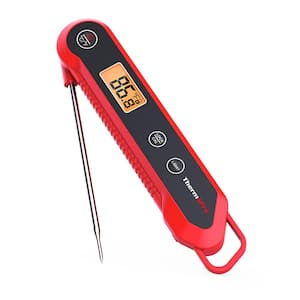
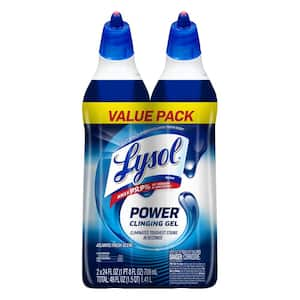
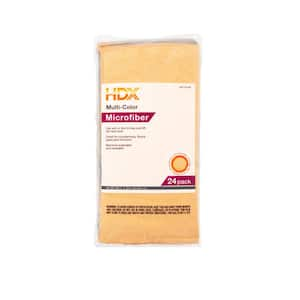
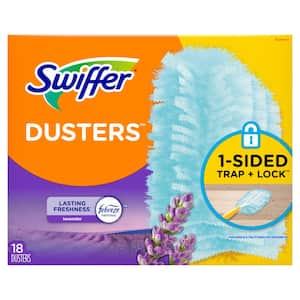
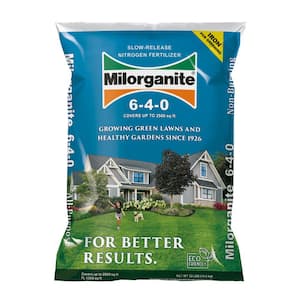
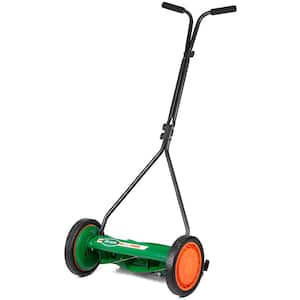
)
)
/17_514245_S_012_Product%20Image%20(square).jpg?im=Resize=(300,300))
;Resize=(300,300))
)
)
)
)
)
/2023_P2_Rain_Barrels_Product%20Image%20(square).jpg?im=Resize=(300,300))
)
;Resize=(300,300))
;Resize=(300,300))
;Resize=(300,300))
/12_SOIL_B_0420_Social%20media%20(square).jpg?im=Resize=(300,300))
;Resize=(300,300))
)
)
;Resize=(300,300))
;Resize=(300,300))
;Resize=(300,300))
;Resize=(300,300))
)
)
;Resize=(300,300))
;Resize=(300,300))
;Resize=(300,300))
;Resize=(300,300))
;Resize=(300,300))
)
/18Patio_Camden_Seagrass_5pcSeating_Planters_302468736_DTL3_L_Social%20media%20(square).jpg?im=Resize=(300,300))
;Resize=(300,300))
;Resize=(300,300))
;Resize=(300,300))
)
;Resize=(300,300))
;Resize=(300,300))
)
;Resize=(300,300))
)
.jpeg?im=Crop,rect=(363.69230769230774,1.2307692307692308,958.7692307692308,958.7692307692308);Resize=(300,300))
;Resize=(300,300))
)
;Resize=(300,300))
;Resize=(300,300))
)
;Resize=(300,300))
)
)
;Resize=(300,300))
;Resize=(300,300))
)
)
;Resize=(300,300))
)
;Resize=(300,300))
;Resize=(300,300))
)
)
;Resize=(300,300))
)
)
/Capello_Spring_Mum_10in_Social%20media%20(square).jpg?im=Resize=(300,300))
;Resize=(300,300))
)
)
;Resize=(300,300))
)
)
;Resize=(300,300))
)
)
;Resize=(300,300))
;Resize=(300,300))











































